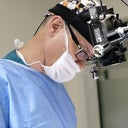Still taping 15 months post op with persistent swelling - what will help this? (Photos)
I had 1st time rhinoplasty April of 2024. 15 months later, I am still having to tape my nose overnight to control the swelling. I have tried asking my surgeon but I don’t seem to be getting any clarity. For context, I’m an ER physician with a short attention span, and even I have felt he and his PA have been a bit dismissive. I am not sure what else to do at this point. i have thick skin and i have found that when I don’t tape it overnight my nose swells a decent amount. in the morning, (if i’ve slept well) my nose looks fantastic right after removing the tape. 8-12 hours later, it’s noticeably larger and FEELS swollen. The swelling doesn’t go away if I don’t tape it. I am concerned I’ve been taping it too long or too tightly, and potentially caused a problem. I have been on acutane for more than a year which has helped somewhat. I have also had 1 round of steroid injections at around 7-8 months post op. i’m not sure where to turn or what to do short of yelling at my surgeon in some dramatic fashion to get him to pay attention. not to mention i moved to Atlanta for my new job and the surgery was performed in NYC. Should I just stop taping all together? Should I get a new consult and see if revision rhinoplasty is needed? Would a series of CO2 laser treatments help get the skin to remain adhered? I could really use some thoughtful advice. I've included 3 examples of how swollen it gets vs shortly after tape removal.








